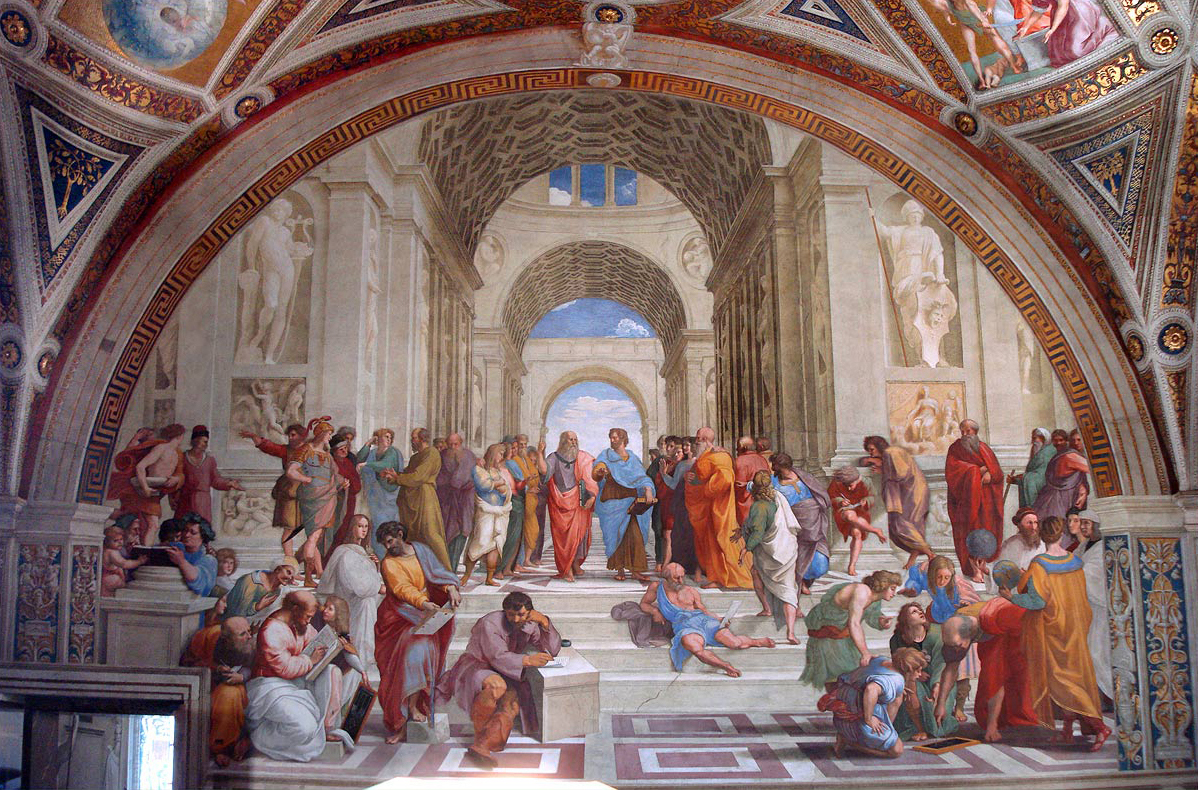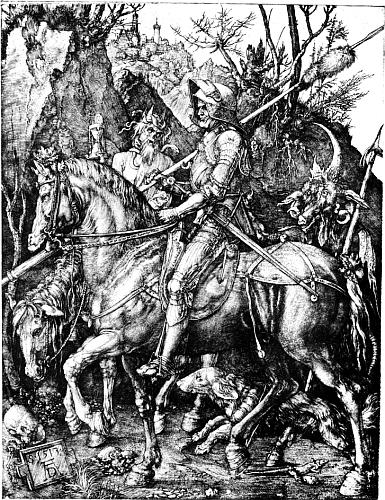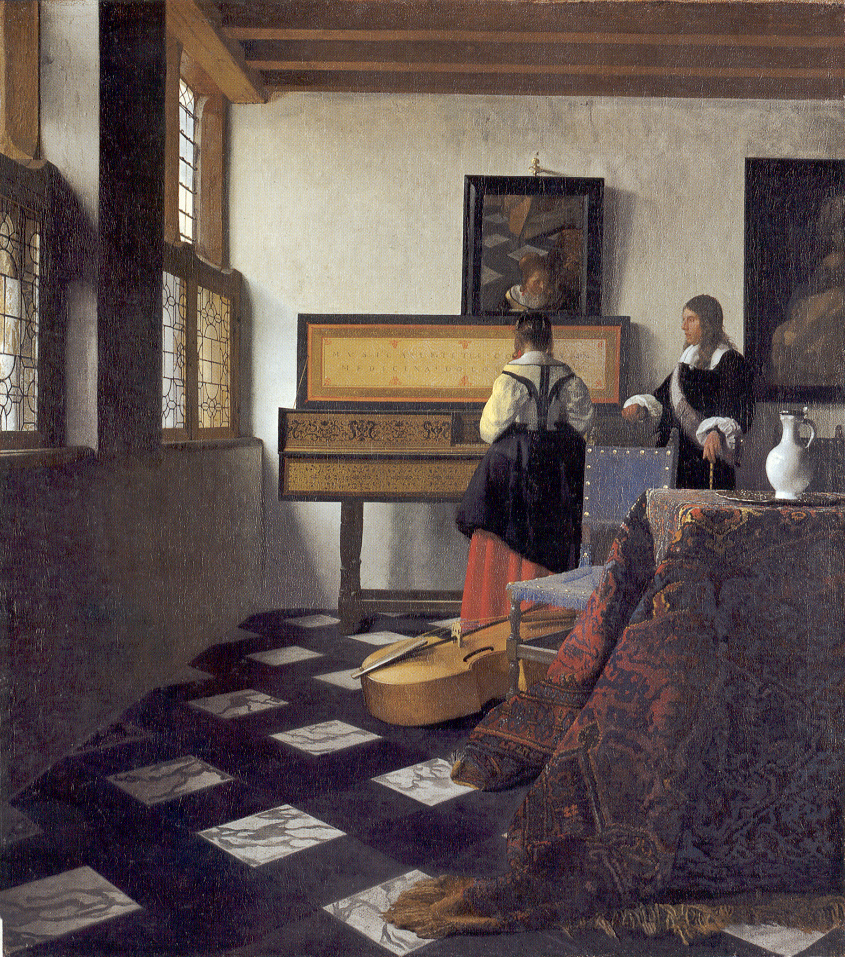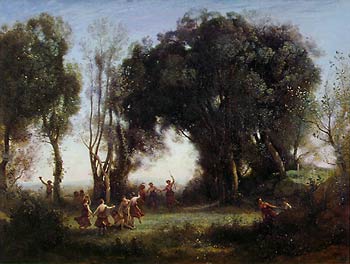Lo! ’t is a gala night
Within the lonesome latter years!
An angel throng, bewinged, bedight
in veils, and drowned in tears,
Sit in a theatre, to see
A play of hopes and fears,
While the orchestra breathes fitfully
The music of the spheres.
Mimes, in the form of God on high,
Mutter and mumble low,
And hither and thither fly—
Mere puppets they, who come and go
At bidding of vast formless things
That shift the scenery to and fro,
Flapping from out their Condor wings
Invisible Wo!
That motley drama—oh, be sure
It shall not be forgot!
With its Phantom chased for evermore
By a crowd that seize it not,
Through a circle that ever returneth in
To the self-same spot,
And much of Madness, and more of Sin,
And Horror the soul of the plot.
But see, amid the mimic rout,
A crawling shape intrude!
A blood-red thing that writhes from out
The scenic solitude!
It writhes!—it writhes!—with mortal pangs
The mimes become its food,
And seraphs sob at vermin fangs
In human gore imbued.
Out—out are the lights—out all!
And, over each quivering form,
The curtain, a funeral pall,
Comes down with the rush of a storm,
While the angels, all pallid and wan,
Uprising, unveiling, affirm
That the play is the tragedy, “Man,”
And its hero, the Conqueror Worm.
From
'Ligeia', a short story by
Edgar Allan Poe, master of the dark arabesque short story. I think the whole thing is really cool, and makes you look like a learned, brooding, dark badass if you recite it at parties, or in a jammed elevator, or if you're making a toast as the Best Man at a wedding.
Poe is better known for his gloomy poems such as
'The Raven' which have inspired musical adaptations, like
Rachmaninoff's 'The Bells'.












